BD² Discovery Research is the cornerstone of our hypothesis-driven, cross-disciplinary program to improve understanding of the biological mechanisms of bipolar disorder.

We fund multidisciplinary teams of scientists and clinicians conducting innovative, targeted research exploring the genetic, molecular, cellular, circuit, and behavioral mechanisms of bipolar disorder. The teams work collaboratively to develop and share strategies, data, and resources across disciplines. Our commitment to real-time data sharing and open access practices aims to accelerate the speed of discovery and advances in treatment.
Our approach is modeled after the Aligning Science Across Parkinson’s Collaborative Research Network (ASAP CRN).

Active Grants
Each project will proactively share findings across Discovery Research projects and the BD² Integrated Network to facilitate progressive collaboration and the improvement of clinical care more quickly.
- Voltage-Gated Calcium Channels in Bipolar Disorder
- Influence of Circadian Disruption on Dopamine and Reward Processing in Bipolar Disorder
- The Role of Cerebellar Cortical and Thalamocortical Circuits in Bipolar Disorder
- Novel Immune Targets in Bipolar Disorder
- Identifying Novel Mitochondrial Mechanisms in Bipolar Disorder
- Bipolar Disorder Genes In Brain Circuits Controlling Sleep and Wake Cycles
- Examining Convergent Mechanisms Through Stem Cells
- CircaVent: A Drug Prediction and Discovery Platform for Bipolar Disorder
-
2024
Voltage-Gated Calcium Channels in Bipolar Disorder
Investigating the function of voltage-gated calcium channels in the causes and development of bipolar disorder and assessing their potential as drug targets using a variety of innovative molecular approaches.
Study Rationale
Genetic factors contribute to the risk for bipolar disorder. Of the many genes involved, those encoding voltage-gated calcium channels (VGCCs) are among the most robust findings. This study will provide a clear understanding of the roles of VGCCs in bipolar disorder, as well as a basis for future studies on their potential value in treatment.

Hypothesis
VGCCs are involved in bipolar due to convergent effects on VGCC structure, function and interactions, driven at least in part by VGCC variants enriched in the brain.

Study Design
The study has three primary aims to test the potential role of VGCCs in bipolar disorder. The team will first consider the molecular basis of VGCC genetic associations with bipolar disorder. Second, they will interrogate the protein structure and channel composition of VGCCs in the brain using the native mass spectrometry technique. Third, they will investigate the properties of identified VGCC proteoforms. These aims will allow the team to determine how changes in VGCC composition may affect protein trafficking of the channels and influence intrinsic properties of neurons.

Impact on Diagnosis & Treatment
By evaluating the role of VGCCs in bipolar disorder, this work will lead to an improved understanding of a genetic risk factor and how it contributes to bipolar disorder development. It also has the potential to personalize treatment strategy for individuals with VGCC-related risk variants. The work may identify drug targets within the VGCC pathways or of VGCCs directly.
Team
Lead PI:

Co-PIs:





Project Outcomes
The project will provide insight on the role of VGCCs as a genetic influence on bipolar disorder and could lead to the identification of new drug targets for impacted patients.
Collapse to Read Less Expand to Read More -
2024
Influence of Circadian Disruption on Dopamine and Reward Processing in Bipolar Disorder
Exploring the link between reward-related behavior and disruption of circadian-regulated processes like sleep – and how the interplay may exacerbate manic symptoms. The work will complement and inform other ongoing work within bipolar-related sleep dysfunction.
Study Rationale
Bipolar disorder is characterized by significant disturbances in sleep/wake cycles. This project will provide a picture of dopamine (DA) dynamics and reward processing across the circadian cycle for both human subjects and a circadian-disrupted mouse model.

Hypothesis
In people with bipolar disorder, disruptions to circadian processes lead to a failure to dampen motivated behavior in the evening, furthering circadian disruption and exacerbating manic symptoms.

Study Design
This study uses a cross-species design to study DA dynamics and related behaviors across the circadian cycle in humans and mice. First, the team will use multi region in vivo imaging in mice to determine specific neural loci underlying the circadian mediation of reward sensitivity. Second, they will use fMRI and iron mapping MRI in human subjects in the evening to characterize the neurobiological mechanisms underlying sustained reward sensitivity at this time in people with bipolar disorder. Third, a smartphone platform will characterize disrupted diurnal modulation of real-world mood and reward processes.

Impact on Diagnosis & Treatment
This work will significantly advance understanding of the neural circuits/systems that mechanistically link circadian disruption and bipolar disorder.
Team
Lead PI:

Co-PIs:





Project Outcomes
This study will enhance understanding of the connection between reward-related behavior and disruption in circadian-regulated processes. The findings have the potential to identify novel brain and behavioral signatures underlying bipolar disorder, potentially providing novel biological and psychological treatment targets.
Collapse to Read Less Expand to Read More -
2024
The Role of Cerebellar Cortical and Thalamocortical Circuits in Bipolar Disorder
Changes along the cerebellar thalamic cortical circuit may drive dysregulation of mood and sleep in bipolar disorder. Understanding this dysregulation using genetic risk models may point to potential therapeutic opportunities.
Study Rationale
Large cohort studies have identified genetic risk factors for bipolar disorder. Although the exact mechanistic links to bipolar disorder are not understood, robust genetic findings serve as critical first steps to understand bipolar disorder etiology and reveal deficient neurocircuitry and potential targets.

Hypothesis
Cerebellar cortical and thalamocortical circuit impairment may drive dysregulation of sleep and affect in bipolar disorder.

Study Design
The team will characterize the basal properties of cerebellar cortical and thalamocortical circuits in relevant genetic models of bipolar risk using a variety of technologies such as single-cell transcriptomics, structural and functional neuroimaging, and electrophysiological recordings. They will further probe the relevant biology using genetic and pharmacological perturbations.

Impact on Diagnosis & Treatment
This study serves as a model for following up on genetic risk factors and develops a pipeline and tools that will be applicable for interrogating the cerebellar cortical and thalamocortical circuits.
Team
Lead PI:

Co-PIs:





Project Outcomes
This project will investigate the role of gene-driven dysfunction within key brain structures to create a framework for validating targets identified in human genetic studies and potentially uncover specific therapeutic opportunities for carriers of those risk factors.
Collapse to Read Less Expand to Read More -
2024
Novel Immune Targets in Bipolar Disorder
Identifying key immune biomarkers and uncovering possibilities for new therapies by using newly developed organ-chip technology and modeling how immune changes affect living human brain cells.
Study Rationale
Both adaptive and innate immune dysfunction have been implicated in the pathogenesis of bipolar disorder. However, little is known about how these immune mechanisms drive increased risk for disease and contribute to disease progression.

Hypothesis
Immune mechanisms substantially contribute to bipolar disorder risk and progression. Targeting immune mechanisms therapeutically would meaningfully improve clinical outcomes.

Study Design
The study will use a cohort of bipolar patients and controls that have previously been established and have associated longitudinal clinical data. First, the team will identify novel therapeutic strategies that target mechanisms of innate and adaptive immune regulation, integrating data from blood samples and phenotyping to prioritize potential targets. Then, they will test novel therapeutic strategies targeting mechanisms of immune regulation in human experimental systems, establishing an in vitro system of modeling the blood-brain barrier using the organ-chip technology.

Impact on Diagnosis & Treatment
This project has the potential to identify immune biomarkers and/or therapeutic targets and establish a system to test candidate immune factors.
Team
Lead PI:

Co-PIs:





Project Outcomes
This study will identify how circulating immune cells in the blood affect human brain cells. The findings have the potential to identify immune biomarkers and possibilities for new therapies.
Collapse to Read Less Expand to Read More -
2023
Identifying Novel Mitochondrial Mechanisms in Bipolar Disorder
Investigating the mitochondrial-related genes, metabolic changes, and the central importance of energy- and activity-related symptoms at the onset of bipolar-related episodes to expand foundational knowledge about bipolar disorder biology and translate that into pharmacological therapeutics and behavioral interventions.
Study Rationale
Mitochondrial mechanisms are highly implicated in bipolar disorder. Growing evidence show involvement of mitochondrial-related genes and metabolic changes, and increased recognition of the central importance of energy- and activity-related symptoms at the onset of bipolar-related episodes.

Hypothesis
Mitochondrial mechanisms, such as the ATP synthase c subunit leak channel (ACLC), are causative in the development of bipolar disorder.

Study Design
Investigate brain mitochondrial metabolism and function in vivo using a variety of neuroimaging approaches. Further explore molecular mechanisms, including mitochondrial mechanisms, of bipolar disorder using stem-cell approaches. Finally, the study will discover new neuronal mitochondrial metabolic mechanisms via a genomics and metabolomics platform that explores relevant mitochondrial-related genes.

Impact on Diagnosis & Treatment
The ACLC mitochondrial mechanism is inhibited by lithium, and there are specific ACLC inhibitors available, one with safety shown in humans. Thus, findings of this project could be translated rapidly to new therapeutics for bipolar disorder. In addition, as lifestyle changes, such as diet, can influence mitochondrial differences, their identification could provide support for behavioral interventions.
Team
Lead PI:

Co-PIs:




Project Outcomes
This project can expand our foundational knowledge about bipolar disease biology, especially in mitochondria, and could be quickly translated into pharmacological therapeutics and behavioral interventions.
Collapse to Read Less Expand to Read More -
2023
Bipolar Disorder Genes In Brain Circuits Controlling Sleep and Wake Cycles
Providing a more complete picture of the biological mechanisms underlying bipolar disorder, especially those involved in sleep and mania-like behaviors. This could guide therapeutic development by linking genetic changes to circuit and behavioral level impacts.
Study Rationale
Studies of people with bipolar disorder have indicated multiple genes associated with the disorder, notably those involved in sleep. Bipolar disorder is characterized by significant disturbances in sleep/wake cycles, and bipolar disorder drugs such as lithium correct sleep/wake disruption. This project will engineer mice with bipolar disorder risk gene mutations and use the biological readout of sleep. This approach is highly relevant to bipolar disorder, as mice share these human risk genes.

Hypothesis
Mutations in bipolar disorder-linked genes in neurons in the ventral tegmental area and lateral hypothalamus contribute to mania-related behaviors.

Study Design
This team has chosen a short list of genes to disrupt in mice based on their strong associations with bipolar disorder, mania-like behaviors in rodents, and the ability of mood stabilizers such as lithium to normalize these behaviors. The study will pioneer the use of cutting-edge CRISPR technology to disrupt bipolar disorder-linked genes from cells in two specific brain regions already linked to mania-like phenotypes, sleep regulation, and impulsive behavior. The team will then focus on sleep/wake disruption and mania-related behaviors in mice that are a hallmark of bipolar disorder in people.

Impact on Diagnosis & Treatment
By identifying the effects of bipolar disorder-linked gene disruptions on sleep, specific brain pathways, and behavior, this work will deliver a more complete picture of the roles of each genetic risk factor. This study will provide a powerful tool to test any new gene targets identified within the BD2 network, and the approach will also be used to test multiple gene disruption on mania-related behaviors. The team will also test stress and lithium (that stabilizes mood in many with bipolar disorder) when each gene is disrupted, helping us to understand who may be more susceptible to acute stress or more likely to be helped by lithium.
Team
Lead PI:

Co-PIs:





Project Outcomes
This study will provide insight into how bipolar risk genes regulate sleep and mania-like behaviors. The CRISPR reagents that will be developed represent a bipolar disorder toolbox for broad use by other labs. This study hopes to guide therapeutic development by linking genetic changes to defined circuit and behavioral level impacts.
Collapse to Read Less Expand to Read More -
2023
Examining Convergent Mechanisms Through Stem Cells
Delineating causal mechanisms of bipolar disorder using scalable multiomic profiling and genome engineering in patient-derived neuron models.
Study Rationale
This study aims to uncover the genetic underpinnings of bipolar disorder, using multiple stem cell approaches to unravel the shared biology of common and rare variants in people with African ancestry.

Hypothesis
Different genetic risk factors affect changes that converge onto shared genes, biological processes, and pathways.

Study Design
This study will examine the biology of common and rare genetic variants in a cohort of 70 people with African ancestry living with bipolar disorder and 70 matched control participants. The team will investigate the causal biological effects of the genetic variants. Biological readouts will be examined to determine how these genetic variants may converge onto common biological pathways.

Impact on Diagnosis & Treatment
The team’s ability to manipulate the biology of induced pluripotent stem cells will substantially benefit the field, further reducing the standard timeline of basic scientific discovery to clinical relevance.
Team
Lead PI:

Co-PIs:






Project Outcomes
This project will provide a massive data set of genes, cell lines, processes, and molecular pathways that may underlie bipolar disorder. It may lead to greater understanding of the genetic risks of bipolar disorder especially in the population of people with African descent.
Collapse to Read Less Expand to Read More -
2023
CircaVent: A Drug Prediction and Discovery Platform for Bipolar Disorder
Increasing our understanding of drug action and the pathophysiology of bipolar disorder to provide better insight on mechanisms of action in current treatments, improve upon the use of current treatments, and develop better alternatives.
Study Rationale
A holistic understanding of the molecular mechanisms leading to the onset of bipolar disorder as well as the successful outcomes after treatment is key to improving treatment regimens and robust alternatives. Current medications for bipolar disorder, including lithium and antipsychotics, have a narrow therapeutic impact and can have undesirable acute and long-term side effects.

Hypothesis
CircaVent probes the mechanisms of current interventions to identify alternative interventions and understand how they function in bipolar disorder.

Study Design
The CircaVent platform combines in silico drug prediction with data from state-of-the-art in vitro and -omics technologies. Hypothesis generation takes place in patient-derived brain organoids, a proxy of a patient’s brain generated from their own cells. Potential drug candidates are validated in organoids by evaluating their global effects on neuronal activity and other multi-dimensional datasets. Most promising drugs will be verified in in vivo models focusing on circadian intervention. Once the team identifies promising treatments and treatment targets, they will work with clinicians to bring them directly to patients and monitor outcomes.

Impact on Diagnosis & Treatment
Standard treatment orthodoxies, including lithium, rely heavily on addressing the symptoms without a complete understanding of their global effects on brain chemistry. The goal of the project is to understand the mechanism of current therapies to identify alternative therapeutics for bipolar disorder with a focus on measuring and mitigating its effects on circadian rhythms, neurochemistry, and a host of other factors that can adversely affect a patient’s quality of life.
Team
Lead PI:

Co-PIs:




Project Outcomes
The CircaVent platform is designed to rapidly test established and potential treatment modalities in combination to determine the therapeutic potential of prospective drugs. This clinical-back-to-basic-biology pipeline can quickly identify potential commonalities in treatment impact, which could help eliminate or identify interventions in a rigorous and standardized manner.
Collapse to Read Less Expand to Read More
Interested in funding opportunities for bipolar disorder research? Check out current Requests for Applications (RFAs).
Highlights + Updates

Explore Our Work
Learn how BD² will close a fundamental gap in understanding the genetic mechanisms of bipolar disorder and the biological tissue that it impacts.




